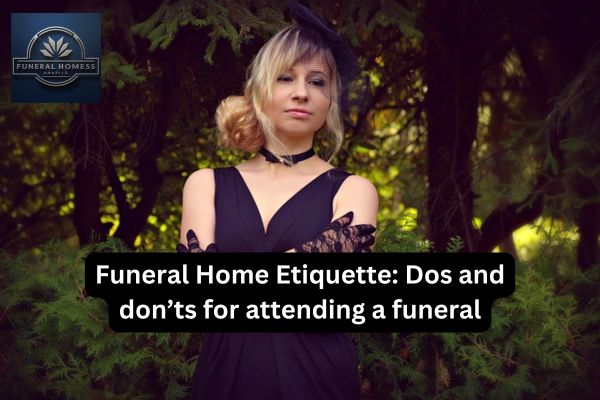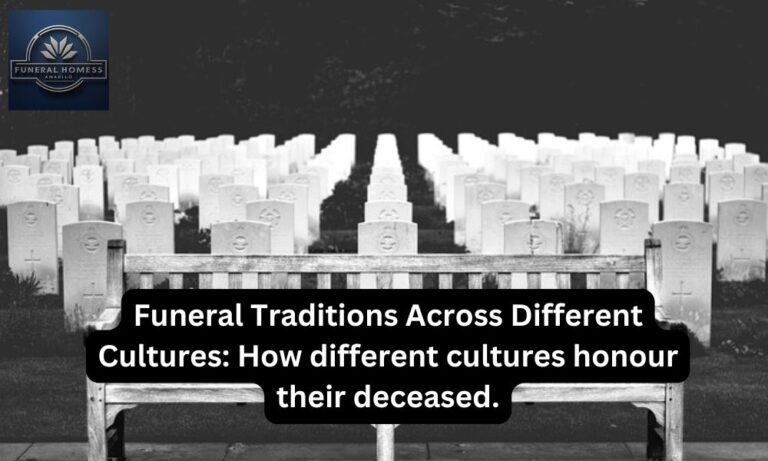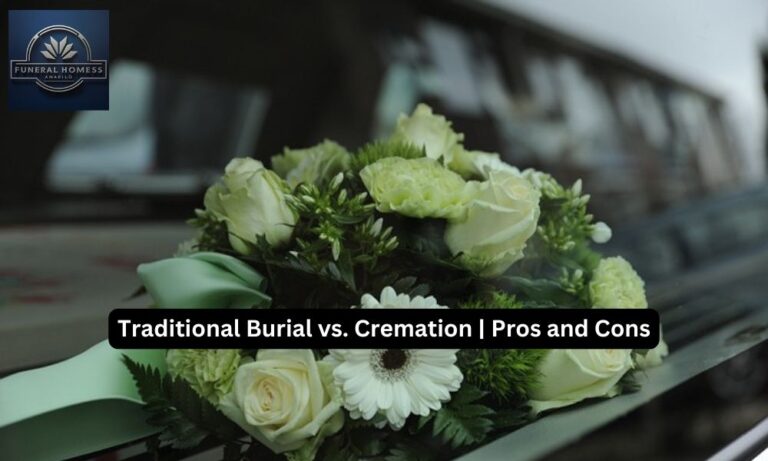Funeral Home Etiquette: Dos and don’ts for attending a funeral.
Attending a funeral is a solemn and often emotional experience, where respect for the deceased and their loved ones is paramount. Funeral homes provide a space for people to pay their final respects, grieve together, and celebrate the life of the departed. Understanding the appropriate etiquette when attending a funeral can help ensure that the occasion is conducted with dignity and grace. This article outlines the essential dos and don’ts of attending a funeral, offering guidance on how to navigate these sensitive events.
1. Understanding the Purpose of a Funeral
Before delving into the specific dos and don’ts, it’s important to understand the purpose of a funeral. A funeral is a ceremony for honouring and remembering the deceased, offering closure for the bereaved, and providing an opportunity for the community to show support. Funerals can vary significantly depending on cultural, religious, and personal preferences, but they all share a common goal of paying respect to the person who has passed away.
2. Preparing for the Funeral
2.1. Dress Appropriately
One of the most fundamental aspects of funeral etiquette is dressing appropriately. Funerals are solemn occasions, and your attire should reflect this. In most Western cultures, this means wearing conservative and subdued clothing, typically in dark colours like black, navy, or grey. Avoid bright colours, flashy accessories, and overly casual outfits, as these can be seen as disrespectful.
In some cultures or specific funeral services, the dress code may vary. For example, white is the traditional colour of mourning in many Eastern cultures. If you’re unsure of the expected attire, it’s always best to err on the side of caution and choose conservative, modest clothing.
2.2. Arrive on Time
Punctuality is critical when attending a funeral. Arriving late can be disruptive and disrespectful to both the family of the deceased and other mourners. Aim to arrive at the funeral home or service location at least 10 to 15 minutes before the scheduled start time. If you do happen to arrive late, enter quietly and take a seat at the back to minimize disruption.
2.3. Silence Your Phone
Funerals are a time for reflection and remembrance, so it’s important to minimize distractions. Before entering the funeral home or service location, ensure that your phone is silenced or turned off. Even vibrations can be disruptive in a quiet, sombre setting. If you need to take an urgent call, step outside quietly to do so.
3. During the Funeral Service
3.1. Offer Condolences Respectfully
Offering condolences is a key part of attending a funeral, but it’s important to do so with sensitivity. When approaching the family of the deceased, express your sympathy with simple, heartfelt words. Phrases like “I’m so sorry for your loss” or “My thoughts are with you during this difficult time” are appropriate and appreciated. Avoid saying anything that could be construed as minimizing their grief, such as “They’re in a better place now,” as this may not align with their beliefs or feelings at the time.
3.2. Participate When Appropriate
Depending on the nature of the funeral service, there may be opportunities for you to participate, such as singing hymns, reciting prayers, or sharing memories of the deceased. If participation is encouraged and you feel comfortable doing so, it’s appropriate to join in. However, if you’re unfamiliar with the customs or prefer to observe quietly, that is also acceptable.
3.3. Be Mindful of Religious or Cultural Practices
Funerals often involve religious or cultural rituals that may be unfamiliar to some attendees. It’s important to be respectful and follow along with these practices to the best of your ability. If you’re unsure what to do, observe others and follow their lead. For example, in some religious services, you may be asked to stand, kneel, or bow at certain times. Even if these practices are not part of your own beliefs, participating respectfully shows your support for the family and the community.
3.4. Maintain a Respectful Demeanor
During the funeral service, maintaining a respectful demeanour is crucial. This includes remaining quiet, refraining from unnecessary movement, and avoiding conversations with other attendees. If you become emotional, it’s perfectly acceptable to shed tears or express your grief, but try to do so quietly to avoid disturbing others.
4. After the Funeral Service
4.1. Attend the Burial or Reception (If Invited)
Many funerals are followed by a burial or a reception where attendees can gather to offer further support to the family. If you’re invited to attend these events, it’s a good idea to do so, as your presence can be a source of comfort to the grieving family. At the burial, follow the lead of the officiant and family members, and at the reception, engage in quiet, supportive conversation.
4.2. Send a Sympathy Card or Flowers
In addition to attending the funeral, sending a sympathy card or flowers is a thoughtful way to express your condolences. Sympathy cards should include a brief, heartfelt message expressing your sorrow and support. If you choose to send flowers, check whether the family has requested specific arrangements or charities for donations in lieu of flowers.
4.3. Offer Continued Support
Grief doesn’t end with the funeral, and your support can be invaluable in the days, weeks, and months that follow. Reach out to the bereaved with a phone call, a visit, or a letter to let them know you’re thinking of them. Offering practical help, such as preparing meals or assisting with errands, can also be deeply appreciated.
5. What to Avoid at a Funeral
5.1. Don’t Take Photos or Videos
Taking photos or videos during a funeral is generally considered inappropriate and disrespectful. Funerals are private, emotional events, and capturing them on camera can intrude on the privacy of the mourners. The only exception might be if the family has explicitly requested photos for personal memories, but even then, it’s best to do so discreetly and with permission.
5.2. Avoid Inappropriate Conversations
While it’s natural to want to connect with others at a funeral, it’s important to keep conversations appropriate for the setting. Avoid discussing topics unrelated to the funeral, such as work, politics, or other personal matters. This is a time to focus on the deceased and offer support to the family, so keep your words and actions aligned with the solemn nature of the occasion.
5.3. Don’t Overstay Your Welcome
After the service, particularly at the reception, be mindful of the family’s needs and energy levels. Grieving can be exhausting, and they may need time alone to process their emotions. If you notice that the event is winding down or if the family seems tired, take it as your cue to leave.
5.4. Avoid Bringing Young Children (If Possible)
Young children may find funerals confusing or upsetting, and they may not have the capacity to remain quiet and respectful throughout the service. If possible, arrange for childcare so that you can attend the funeral without the added responsibility of managing a child. However, if children must attend, prepare them beforehand about what to expect and the behaviour that will be required of them.
6. Conclusion
Funerals are significant events that require thoughtful behaviour and respectful participation. By following these guidelines for funeral home etiquette, you can show your support for the bereaved family and honour the memory of the deceased in a way that is both dignified and considerate. Remember that the key to proper funeral etiquette is empathy—putting yourself in the shoes of the grieving and acting with kindness and respect at all times.
For more detailed information on funeral customs and practices, you may refer to this Wikipedia article on funerals.





